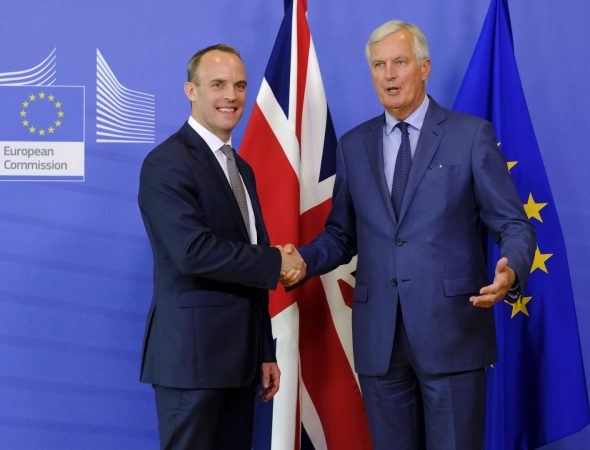Don’t bank on Mrs May
Everyone agrees that after her failure to win a more substantial majority in her surprise general election last year, Theresa May has no future as prime minister, but no one has any prospect of getting rid of her, at least not before Brexit Day on March 29 next year.
The Conservative party is hopelessly split between Brexiteers and Remainers and neither has a candidate capable of uniting both sides. The fear of a Labour majority in parliament is sufficient to keep most Conservative MPs firmly behind Mrs May. Meanwhile, the Labour party under Mr Corbyn, which should have been attacking the goverment on all fronts, has spent the summer bogged down in accusations of anti-Semitism.
Mrs May voted against Brexit but now leads a government committed to delivering it. Her career has been marked by her ability to escape responsibility for her own acts. When at the Home Office she launched a policy of making immigrants feel unwelcome in the UK, which led, among other abuses, to the scandal of the so-called Windrush generation. Many West Indians who were legally entitled to live in the UK were deported because they did not have written evidence to show when they arrived. Under her, immigation officers were given targets of the number of deportations to achieve, but it was her successor at the Home Office who was forced to resign. In fact, she made a substantial contribution to the rise in anti-immigrant feeling, which was the main factor behind the support for Brexit.

That the current goverment is unpopular is not in doubt. Three factors contribute to this: the Conservatives rely on the support of the ultra-conservative Northern Irish DUP who are not liked in England due to their right-wing stance on issues such as abortion; the problems of the National Health Service get worse every day; and railway fares will rise again after a year of abysmal service. And yet, the government has already survived the resignations of Boris Johnson as foreign minister and David Davies as Brexit negotiator because they disagreed with her Brexit policy and it is difficult to foresee what might bring her down.
In reality, it will probably be from inside the Parliamentary parties that change comes. Any change in the leadership of the Labour party or its policy on Brexit could trigger a crucial vote with some Conservative MPs allying with them to stop Mrs May’s plans going forward, or Brexit could still cause a split in the Conservative party.
2019 will be an interesting year for British politics – no one knows whether the current PM will still be in power at the end of it.









